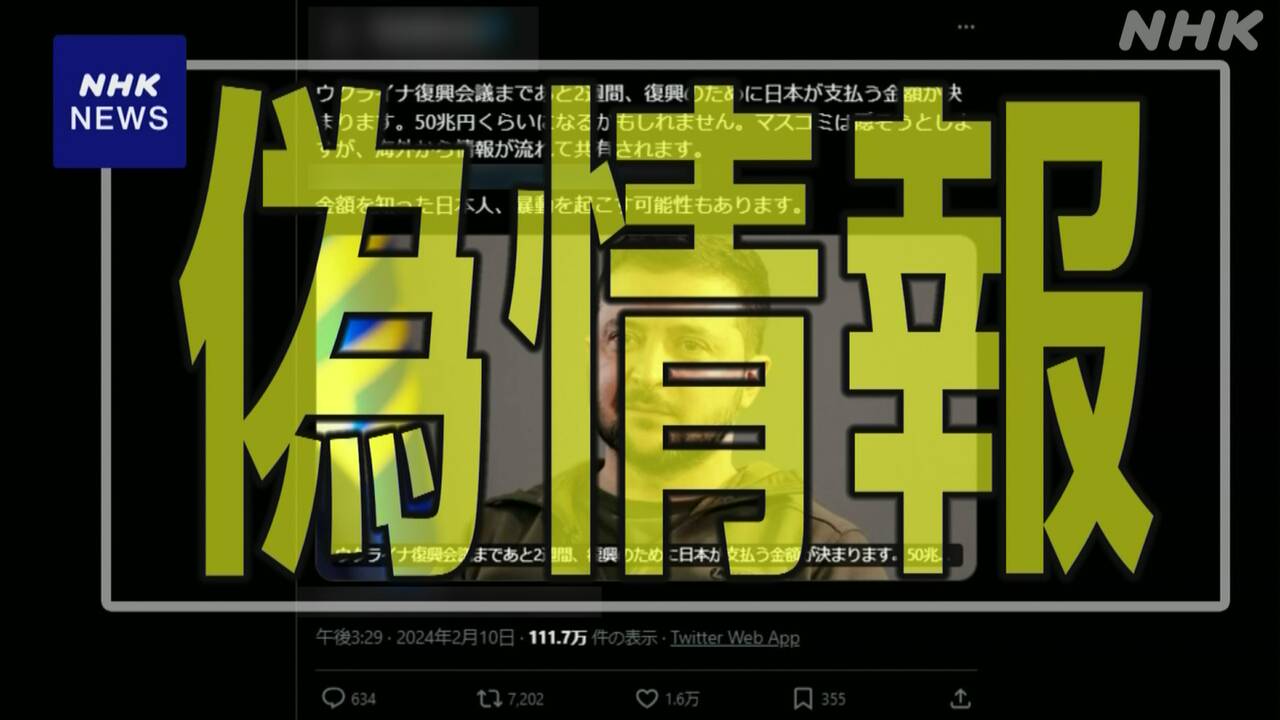Ahead of the two-year anniversary of Russia's military invasion of Ukraine, NHK analyzed posts in Japanese about Ukraine that were spread on social media, and found that Russia has been on the rise since around May of last year, when the G7 Hiroshima Summit was held. We found that the rate of spread of articles on sites that summarize the content we support is increasing.
Some of this information is false information, and experts say that this is because, while interest has declined since the beginning, attention is now focused on the burden of aid to Ukraine.
For the past two years, NHK has used the analytical tool "BuzzSumo" to analyze posts in Japanese about Ukraine that have been spread on the old Twitter account Comparisons were made by month.
As a result, information from aid organizations and articles from major media outlets in Europe, the United States, and Japan accounted for 19 of the initial reports, and this trend remained unchanged until last spring, but from around May last year, when the G7 Hiroshima Summit was held, Russia Articles from ``summary sites'' that repeatedly post in support and Russian state-run media ``Sputnik'' are now in the top 20, and in the three months up to August last year, 7 out of the top 20, ▽ In the three months up to the middle of this month, there were five.
Recently, the most disseminated piece of false information from a summary site was that it claimed that the amount Japan would pay for the reconstruction of Ukraine could be around 50 trillion yen.
The number of spreads in the top 20 places was around 770,000 times in the first three months of the invasion, but it has recently fallen to 180,000 times, and experts are concerned about the spread of the virus. The reason behind this decline is that the burden on support for Ukraine is attracting attention.
Associate Professor Tomoki Kunieda of the Department of Newspapers, Faculty of Letters, Sophia University, said, ``A situation has arisen in which statements criticizing that aid to Ukraine is becoming a burden on Japan are spreading.As the political and social situation changes, fake and "I think there is an opportunity for news and pro-Russian rhetoric to spread widely and exert political influence."
Articles and information related to Ukraine that have been spread
Looking at the articles and information that were spread in Japanese about Ukraine on the old Twitter account X and Facebook, the one that was most spread was the international NGO "Doctors Without Borders" for three months when the invasion began. ``Hometown Tax'' website, which donates to local governments accepting refugees from Ukraine, even for the three months up to February last year, and Prime Minister Kishida for the three months up to May last year. It was a newspaper article reporting that the minister had given President Zelensky a rice scoop made from Hiroshima with the words ``Sure Victory'' written on it.
However, the trend changed around May of last year, when the G7 Hiroshima Summit was held, and articles criticizing Ukraine and pro-Russian articles began to rank high, and were the most widely distributed articles in the three months up to August last year. This is false information from a summary site that says ``Ukraine reconstruction tax will be collected and Japan will provide 20 trillion yen aid.'' In the most recent three months up to mid-February, they have repeatedly posted in support of Russia. A summary site provided false information stating that ``the amount Japan will pay for the reconstruction of Ukraine may be around 50 trillion yen.''

